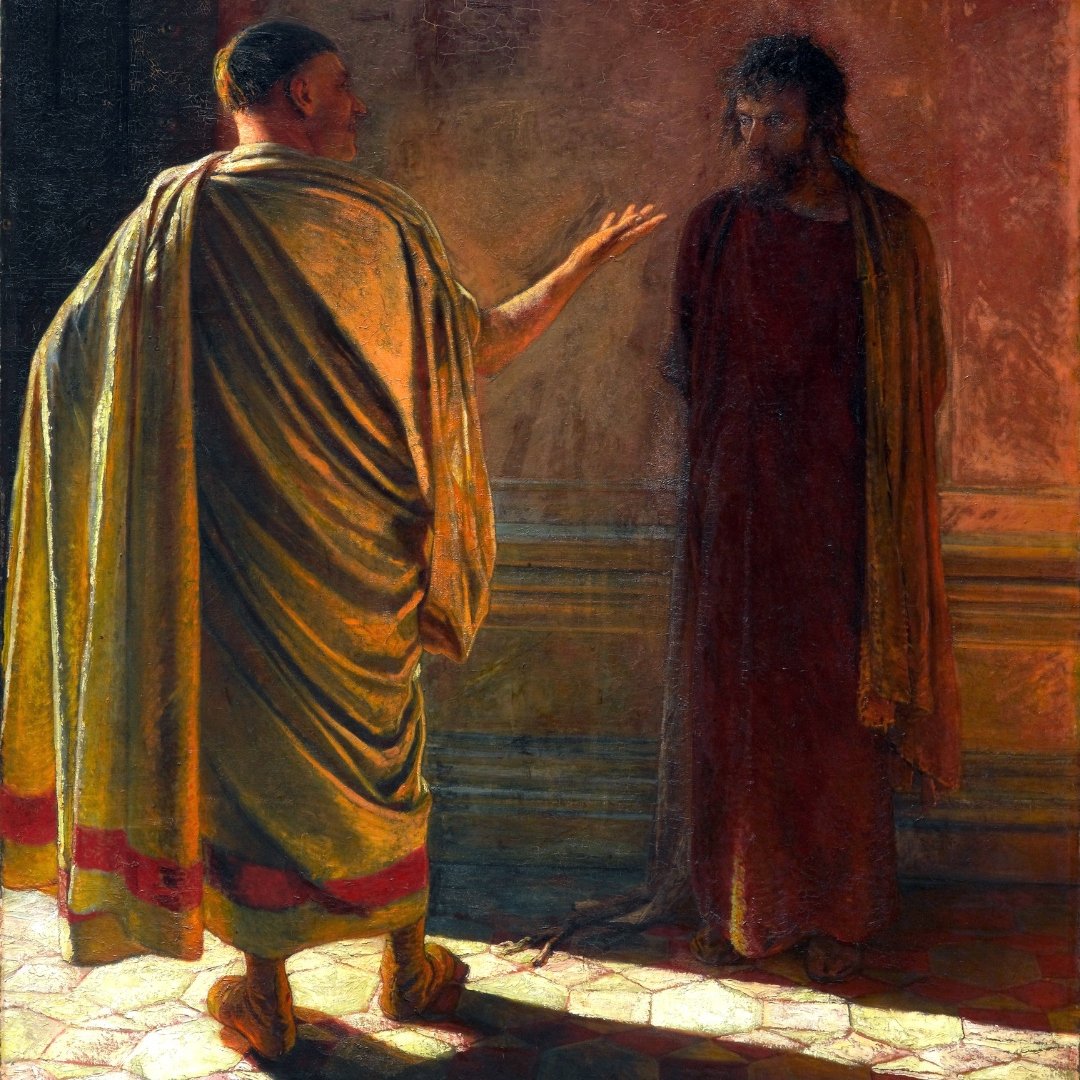
Helen Syski looks at how Jesus did not always tell us to speak up; He often told us to be silent.
Matthew 12:16, 16:20, 17:9. Luke 8:56, 9:21. These are only the beginning of a list of places in the Bible where Jesus performs miracles or shares Truth and then commands the receiver not to tell. Yet, so often in Bible studies and evangelization talks, this is passed over. I have often heard the leper’s inability to obey Jesus’ command to be silent praised as the spirit of evangelization! Tell, yell, and overshare because it’s somehow going to convert people.
Yet Jesus said clearly: “Say nothing to anyone.”
Why do we always assume that Jesus didn’t mean that phrase?
Surely something repeated so often in the Bible, quoted in Jesus’ own words, ought to be carefully pondered, considered, and understood to mean what it means.
Surely Jesus’ silence at His own trial (cf. Matthew 27:11-14) is telling that He meant His command, “Say nothing.”

In St. Thérèse of Lisieux’s autobiography Story of a Soul, she tells how, as a young child, she sees her statue of Our Lady smile at her as she is healed from a terrible sickness. The beauty of the vision heals and fills and cleanses her soul as well as her body. She is transported. She knows inside that it is a little secret between Mary and herself. She intuits that her happiness would disappear if she were to tell anyone; she has received a whisper from the Holy Spirit. However, she finds herself unable to keep it a secret from the pressing questions of a sister, and immediately the consolation vanishes and leaves little Thérèse very sad. Eventually, Our Lady restores her to joy, but it is many years later. (Story of a Soul, 66-67)
Would God have asked her to share this grace with another someday? Perhaps. But it was not yet ripe. It was not time. Those were not the ears meant to profit from it.
Silence is golden. It is the wellspring of the heart. It protects and nourishes the intimate, private places in our hearts. The good things God gives us often reach maturity in the giving to others, but sometimes they are meant as a marinade for our soul. To puncture the bag by speaking about them misses the point. A marinade only works to flavor and tenderize the meat if given the time.
When a turtle hatches from its shell, the yolk sac stays attached for a week. It contains important nutrients for the first days of life. Perhaps when the Holy Spirit works in us but asks us to not tell, it is so that the grace can be fully absorbed. Someday, if it comes time to share, He will tell us to speak out. In the meantime, it is like the newly hatched turtle’s yolk sac, feeding our soul as we venture into a new phase of the spiritual life.
Now of course Jesus also tells people to share at times. The point is that keeping silent and speaking out are not automatically holy or unholy. We need the gift of the Holy Spirit, we need God’s directives, in order to know which it will be.
For me, a very verbal someone, the scariest words in the Bible are Matthew 12:36: "I tell you, on the day of judgment people will render an account for every careless word they speak." Scariest of all is that those careless words may not be bad in and of themselves, but rather harmful because they were not at the direction of the Holy Spirit. Speaking truth, but in the wrong way or at the wrong time or to the wrong soul, will also leave us liable to punishment.
Fr. Romano Guardini was a priest in Germany during WWII and influenced Catholics such as Josef Pieper and Pope Benedict XVI. His wisdom on the virtue of truthfulness goes beyond a typical black and white understanding to one that is infused with the Holy Spirit.
A truth that is spoken at the wrong moment or in a wrong way may so confuse a person that he has difficulty in getting his bearings again. That would not be a living truthfulness but a one-sided one, damaging and destructive. Of course, there are moments when one must not look to the right or left but state the plain truth. But, as a rule, it holds good that we are in the context of existence. (Learning the Virtues that Lead you to God, p.15)
With more humor he quotes a friend:
Truthfulness is the most subtle of all virtues. But there are persons who handle it like a club. (Learning the Virtues that Lead you to God, p.17)
Let us ask the Holy Spirit not only for the grace to witness that “the blind receive their sight, the lame walk, lepers are cleansed, the deaf hear, the dead are raised, the poor have good news proclaimed to them,” (Luke 7:22) but also for the courage, grace and wisdom to “say nothing to anyone” (Luke 5:14) according to His will.

Copyright 2022 Helen Syski
Images: Canva; By Nikolai_Ge, Public Domain, Wikimedia Commons
About the Author

Helen Syski
Helen Syski is co-founder of the Kiss of Mercy Apostolate, a Little Way to heal the world from abortion. A life-long New Englander and Harvard grad, Helen enjoys all four seasons and apple pie with her husband, children, and Labrador retriever. Continue the conversation at AdequateAnthropologist.com.


.png?width=1806&height=731&name=CatholicMom_hcfm_logo1_pos_871c_2728c%20(002).png)
Comments